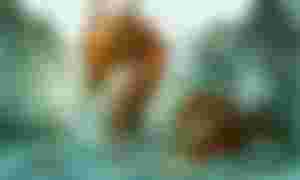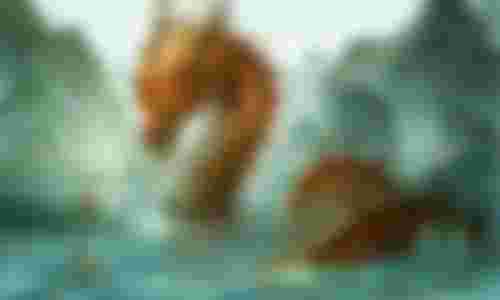Ryujin (aka Ryu-o) is the dragon king
0
21
Ryujin (aka Ryu-o) is the dragon king, sea god, and master of serpents in Japanese mythology. With his magic jewels he is responsible for the tides, and he represents both the perils and bounty of the sea and so was especially relevant to an ancient island nation like Japan. Ryujin is often associated with or considered the same as Owatatsumi-no-kami, another water deity or Shinto kami (spirit), better known as Watatsumi. Believed to have a useful knowledge of medicine and considered the bringer of rain and thunder, Ryujin is also the patron god or ujigami of several Japanese family groups.
Associations
Ryujin is one of the eight dragon kings which were originally imported from Indian mythology via China and Korea. He is the lord of the sea and snakes, who may be his avatar and which were considered by the ancient Japanese to be a form of dragon. Snakes were also considered the messengers of Ryujin and provide the dragon king with a link to the outside world from his residence in a palace beneath the sea or in the lake of an extinct volcano. The depths of Lake Biwa, north-east of Kyoto, are often cited as Ryujin's home. Snakes were associated with death and thunder which link with Ryujin's role as a bringer of rain and storms. Ryujin was thought to appear in people's dreams and briefly in the moment of waking up. The god of the sea has a handy dispensary of useful medicines, too, especially those which can guarantee a long life. Finally, the god is often linked with sujin, the minor kami of fresh water, springs, and wells.
The god has shrines across Japan and especially in rural areas where fishing and rains for agriculture are so important for local communities. In art, Ryujin is typically portrayed as a sea-dwelling dragon or a giant snake. He may carry the magic round jewel which represents power and monarchy in Japan and with which the god can control the tides.

